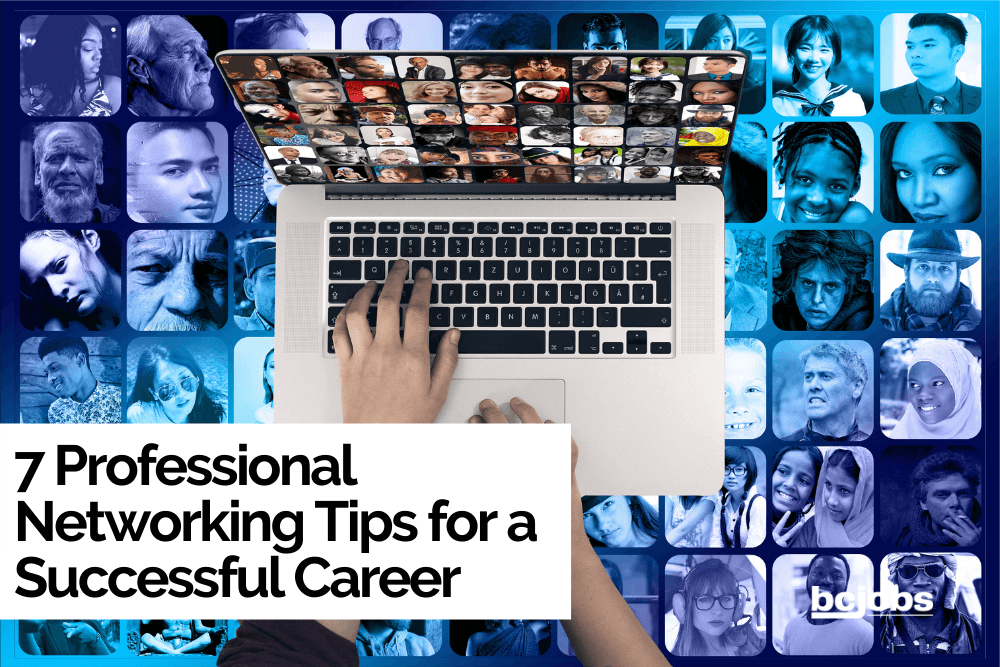Nearly 80% of professionals agree that professional networking is a valuable tool for career progression [1]. Even so, one-quarter of currently-employed adults do not engage in active professional networking, and 38% of those who do struggle to maintain contact with their network.
What is the most significant cause of this networking neglect? Insufficient time for cultivating helpful connections. Use the following techniques to get significantly better returns for every minute spent on networking.
How To Build Better Professional Connections
Any person exploring jobs in Vancouver or any other job market can benefit from leveraging professional contacts. However, the success of your network outreach depends on the quality of the connections you make.
1. Do Not Underestimate The Importance Of (Good) Face-To-Face Interaction
Though many professionals today prefer remote work, virtual meetings, and networking via social media, in-person touchpoints continue to be the most valuable professional networking moments.
That said, candidates seeking jobs in Vancouver and other competitive job markets must understand their own communicative strengths and weaknesses; attempting to engage in ways that are inauthentic and/or uncomfortable will likely yield underwhelming results.
2. Understand High-Efficiency Professional Social Media Activity
Often, people use professional social media platforms as a cold-calling channel. Yet attempting to gain visibility that way is often unproductive.
Conversely, job search experts often recommend using keywords and other search tools on LinkedIn to identify potential high-value contacts before moving to Twitter and Facebook to build an organic relationship. Engaging with posts and becoming involved in ongoing conversations is vastly more effective than sending an unsolicited and/or unexplained request to connect.
How To Make Use of Professional Networks
Networking plays some role in recruitment for 85% of job openings. What’s more, nearly half of all currently employed people found and/or landed their current position via a professional network (while just about one-quarter used a job board).
Yet even strong professional connections are only beneficial when used appropriately.
3. Understand The Rules Of Professional Leverage
There is no doubt that networking works. That said, professional connections work most in your favor when contact follows a specific set of rules, namely:
- Do not send unsolicited/unexplained connection requests or solicitations for employment;
- Never either ask for an interview or a job directly (instead, inform contacts that you are in the job market and that you would appreciate it if they inform you of any opportunities they know of).
This is how more than one-third of LinkedIn users have received job offers — as a result of casual communication.
4. Understand What Your Professional Networks Can (& Cannot) Do For You
The greatest benefits of a good professional network are the avenues it opens up for personal and professional growth. That said, this does not always equate to direct job offers and recruitment opportunities; often the greater benefit comes from gaining improved industry knowledge and cultivating new and creative insights about innovation in the sector.
Being a part of a professional network — no matter how impressive it appears — cannot overcome the absence of these critical candidate qualities.
How To Network While You Are Not Exploring The Job Market
One of the most challenging elements of professional networking is maintenance. About 52% of people neglect their professional contacts — except when they need professional support. Many others spread their networking efforts too thin, attempting to keep in touch with every professional contact they meet.
5. Pinpoint High-Value Contacts
People that are able to maintain a helpful degree of network contact accomplish this primarily by being selective about which high-value contacts they actively stay in touch with after meeting. As a result, for more than two-thirds of established professionals, their “little black book” of high-value network touchpoints contains fewer than fifteen people. This is despite the average established professional having more than 230 contacts on LinkedIn, alone.
6. Know When (& When Not) To Use Social Media
Though LinkedIn aims to be only a professional networking space, users find it has limited functionality outside a job search. That is why only 12% of users feel that LinkedIn is (or should be) the best means of staying in touch with important contacts.
People who supplant direct, personal communication with an energetic “about me” social media presence ultimately lose out. At best, maintenance messaging gets drowned out by the “noise” on a social networking platform (which includes sales and marketing pitches, recruitment, and some significant junk content). At worst, “all about me” content comes across as spam.
7. Turn Contacts Into Reciprocal Relationships
Each professional connection, like any interpersonal relationship, is unique. That said, some general strategies should inform your efforts to follow-through and follow-up with high-value contacts.
Some of the most effective methods include:
- Developing a personal bond (taking an interest in contacts and their contexts);
- Seeking to be helpful;
- Making productive contributions to publicly visible discussions (like on LinkedIn or Twitter) .
About BC Jobs
BCjobs.ca is Western Canada’s largest job board. For nearly 20 years, BC Jobs has connected job candidates with companies looking to add talent to their team. To support our candidates, we recently launched a podcast to help you stand out during your job application. Listen to weekly episodes on our podcast to hear what recruiters are thinking and what companies look for when considering their next hire. We also host free virtual events to support candidates, such as #HireMe2020, a series of live guest speaker events with all-star speakers from the top employers in BC and across Canada. Email community@bcjobs.ca to find out more.
Tags: bc jobs, how to network for a job, how to network online, Jobs in Vancouver, networking and career, networking and career development, professional networking during covid, professional networking events, professional networking tips



